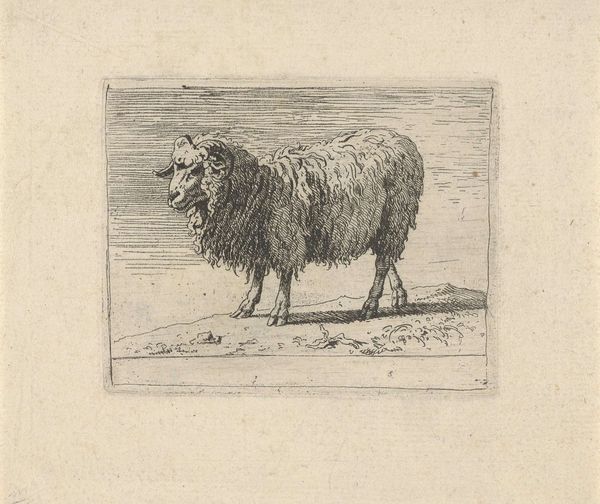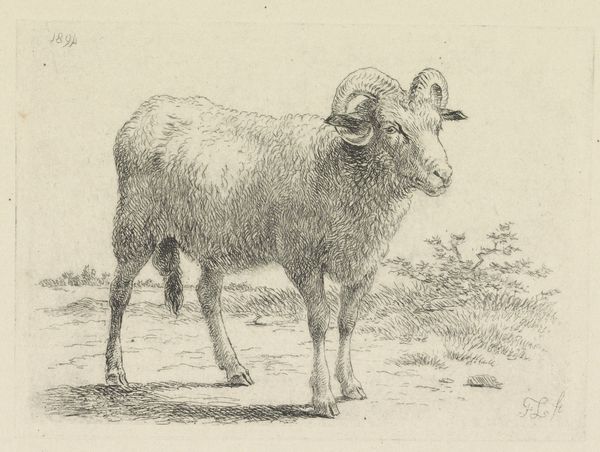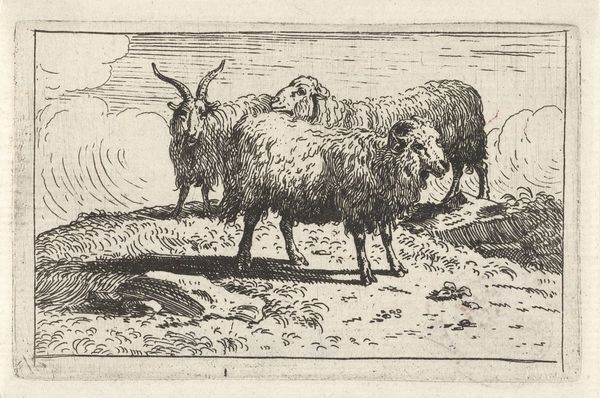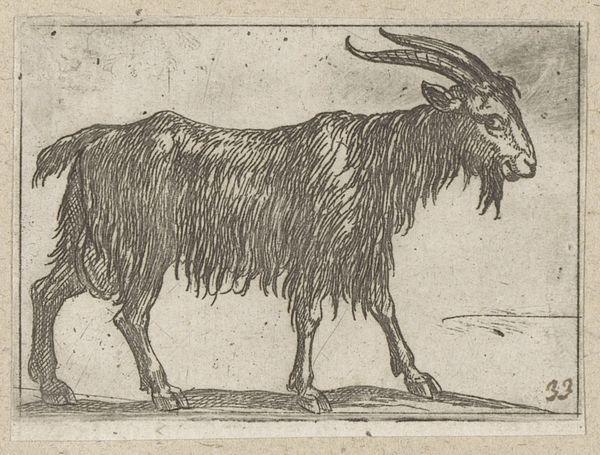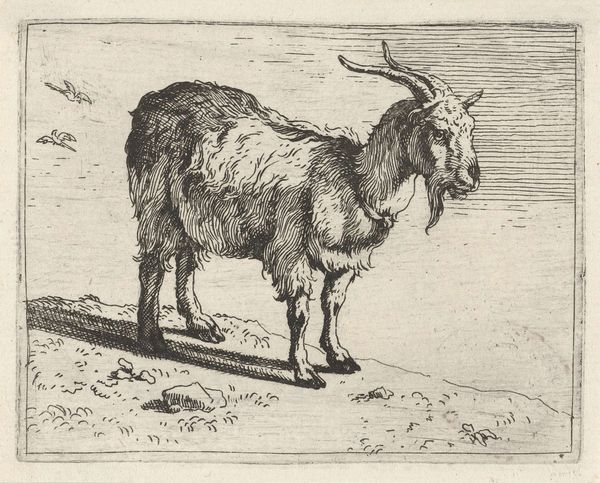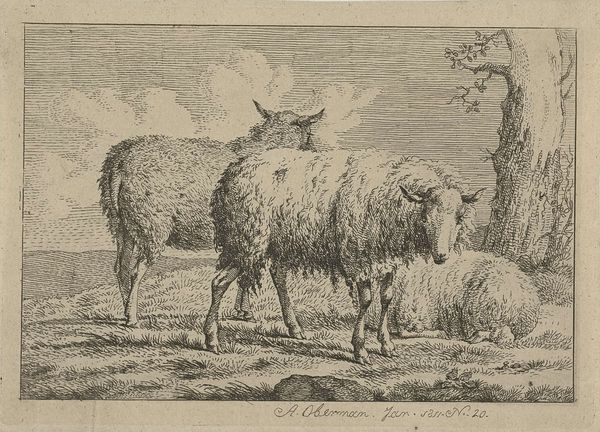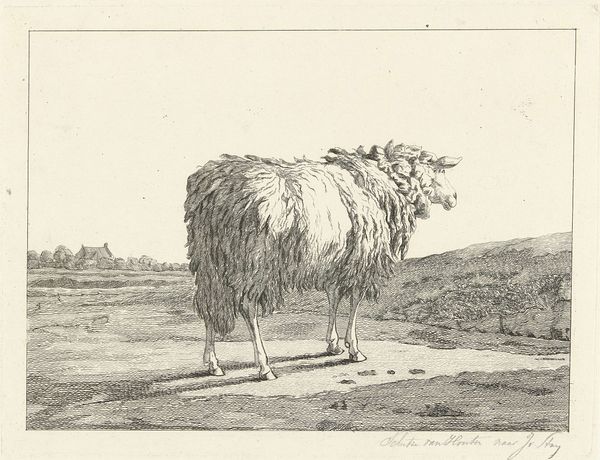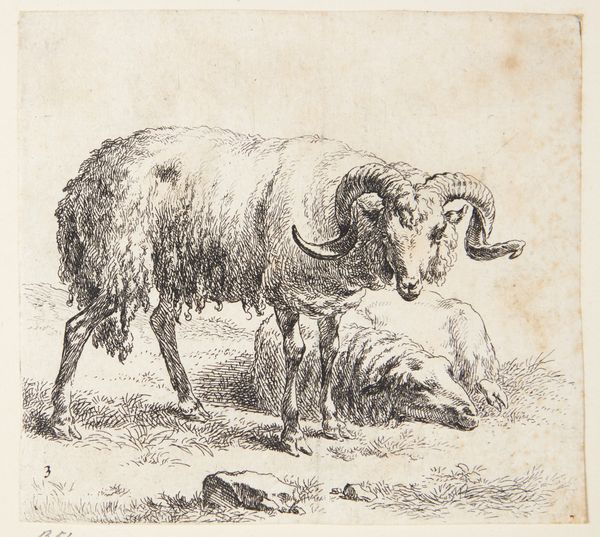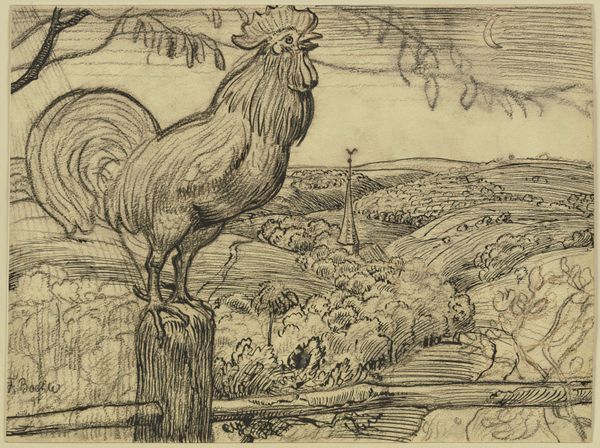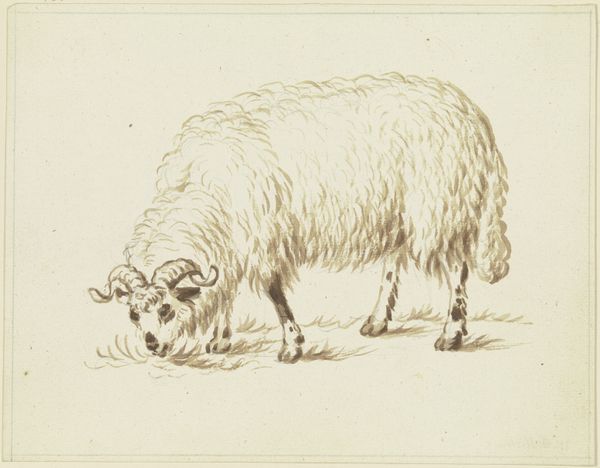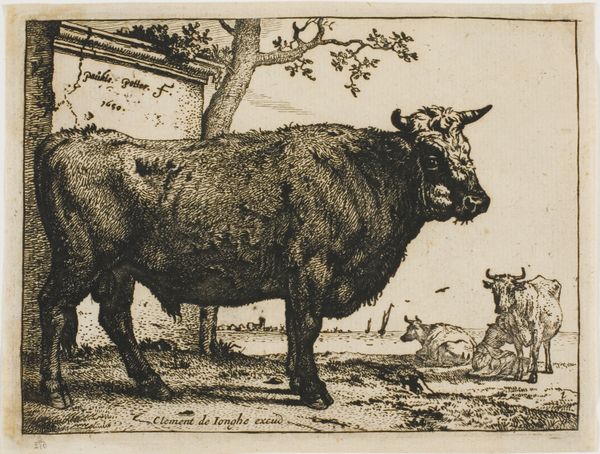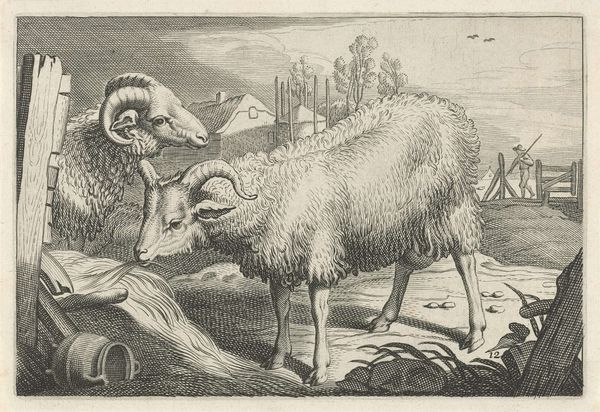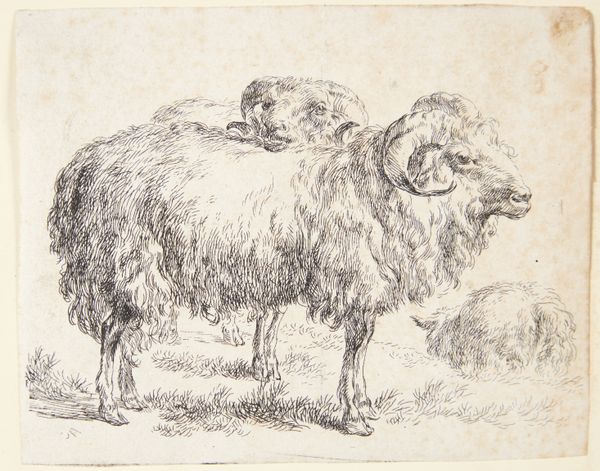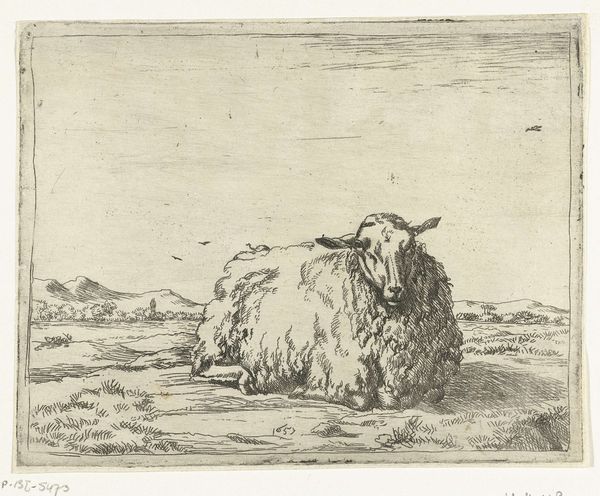
drawing, paper, ink
#
drawing
#
animal
#
dutch-golden-age
#
landscape
#
figuration
#
paper
#
ink
#
symbolism
Dimensions: height 112 mm, width 143 mm
Copyright: Rijks Museum: Open Domain
Richard Nicolaüs Roland Holst made this print of a sheep in a coastal landscape using etching. The material qualities of the metal plate have a strong influence on the final appearance, as the etched lines are able to capture incredible detail. Holst would have painstakingly created the image by drawing through a waxy ground on the metal, then bathing the plate in acid. The acid bites into the exposed lines, creating grooves that hold ink. Wiping the plate leaves ink only in these grooves, and the image is transferred to paper under great pressure. The result is a print with a velvety quality. This highly skilled process has a social and cultural significance tied to the history of printmaking, where reproducibility meets artistic endeavor. The laborious process used here elevates it beyond mere reproduction. It invites us to appreciate the work involved in its creation, challenging the traditional hierarchy between craft and fine art.
Comments
No comments
Be the first to comment and join the conversation on the ultimate creative platform.
